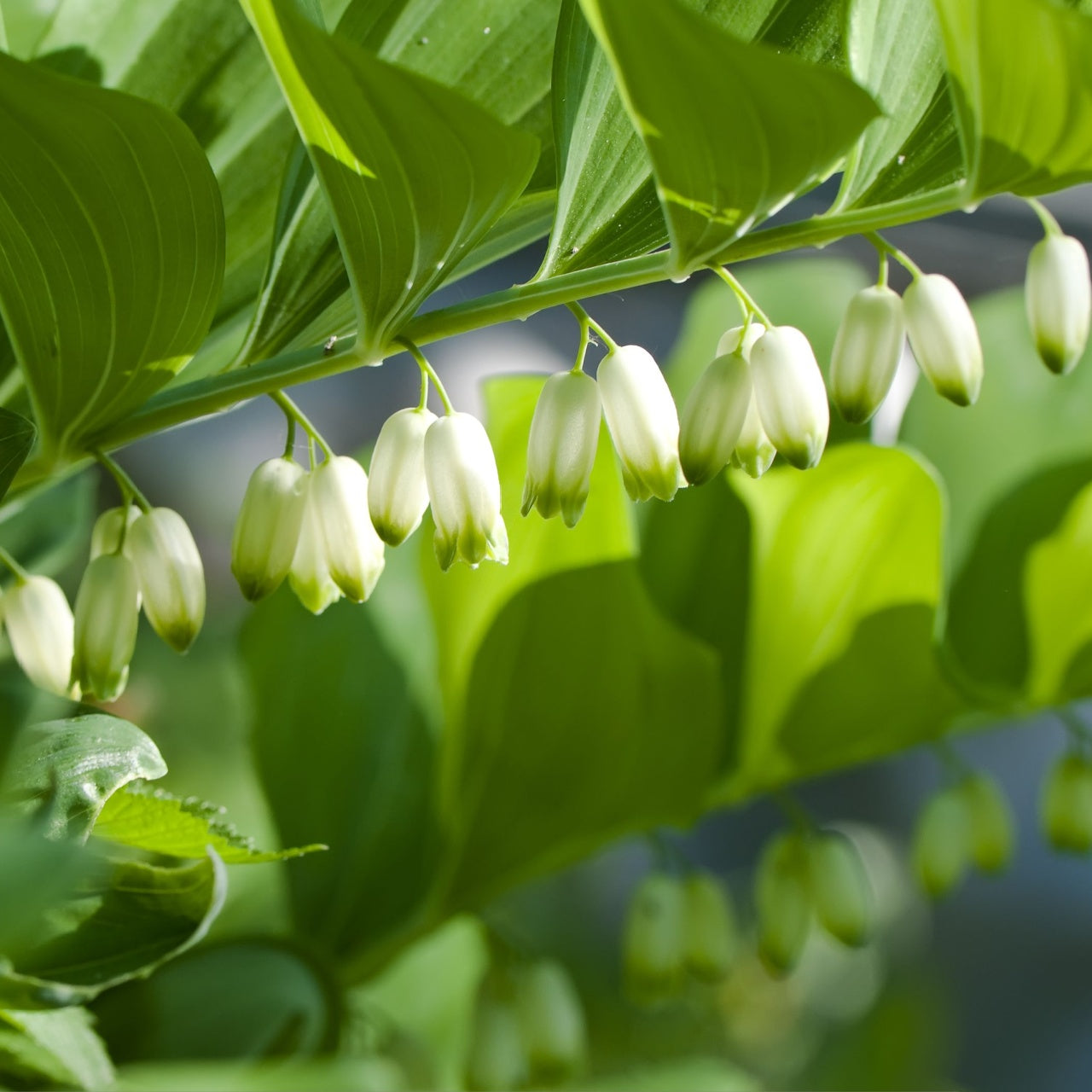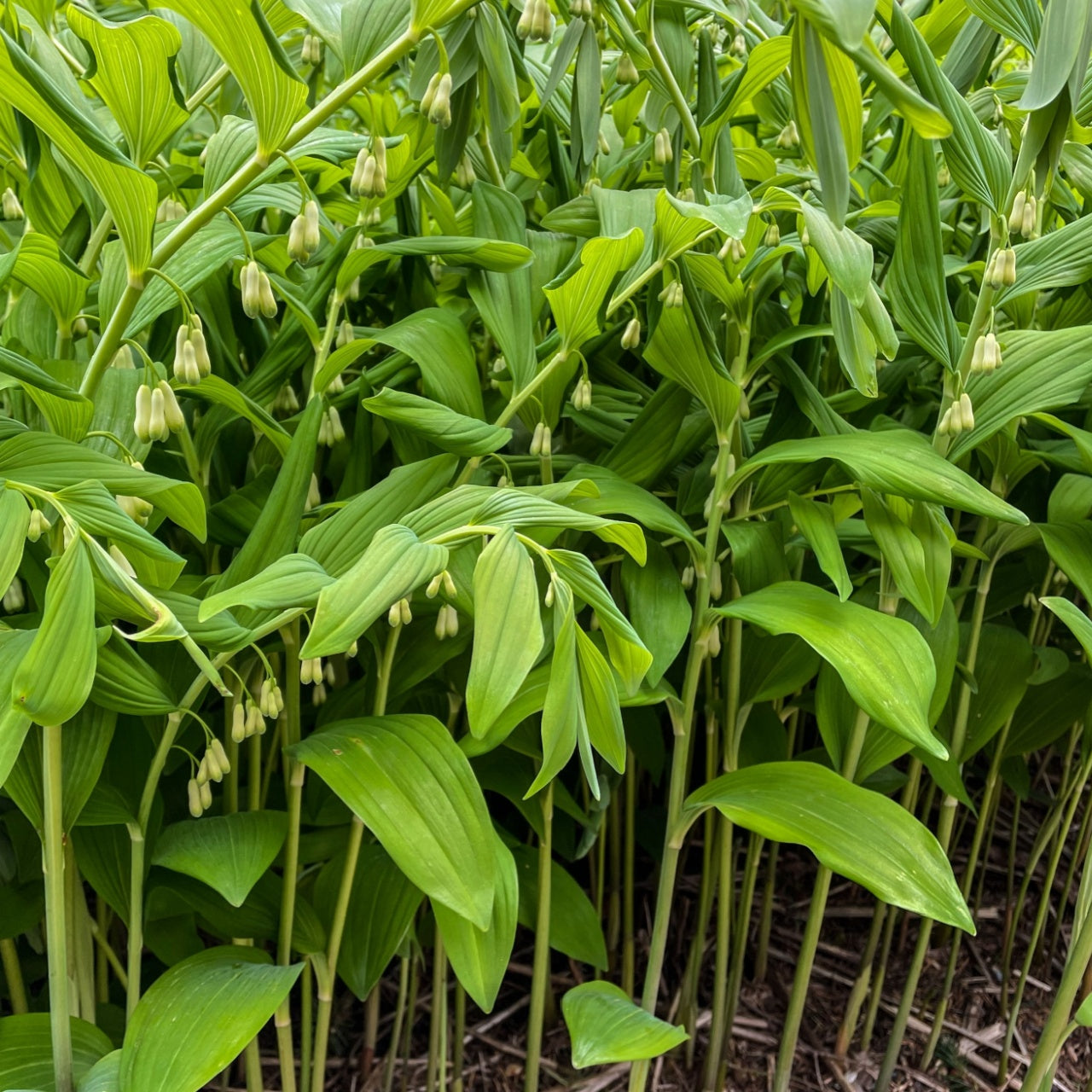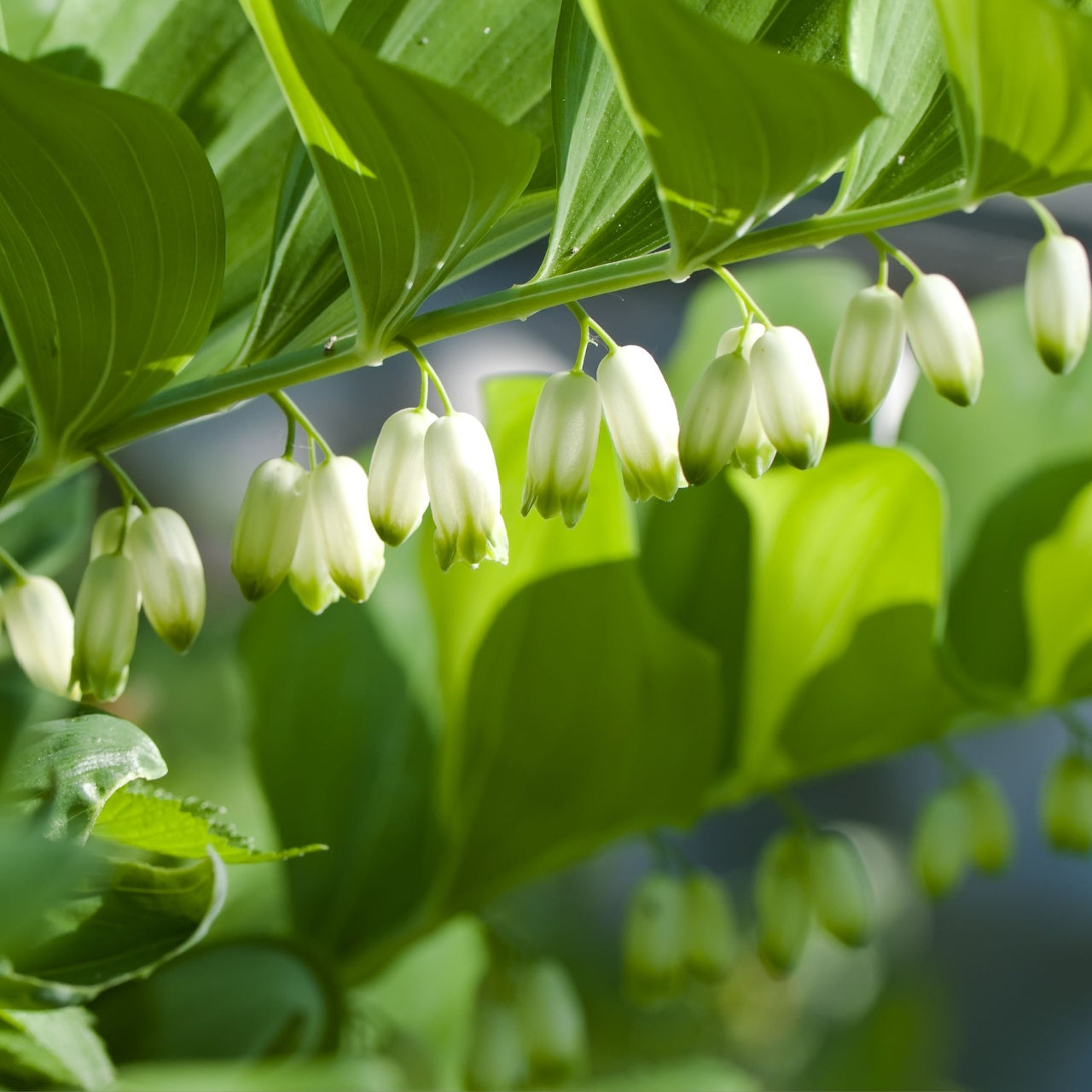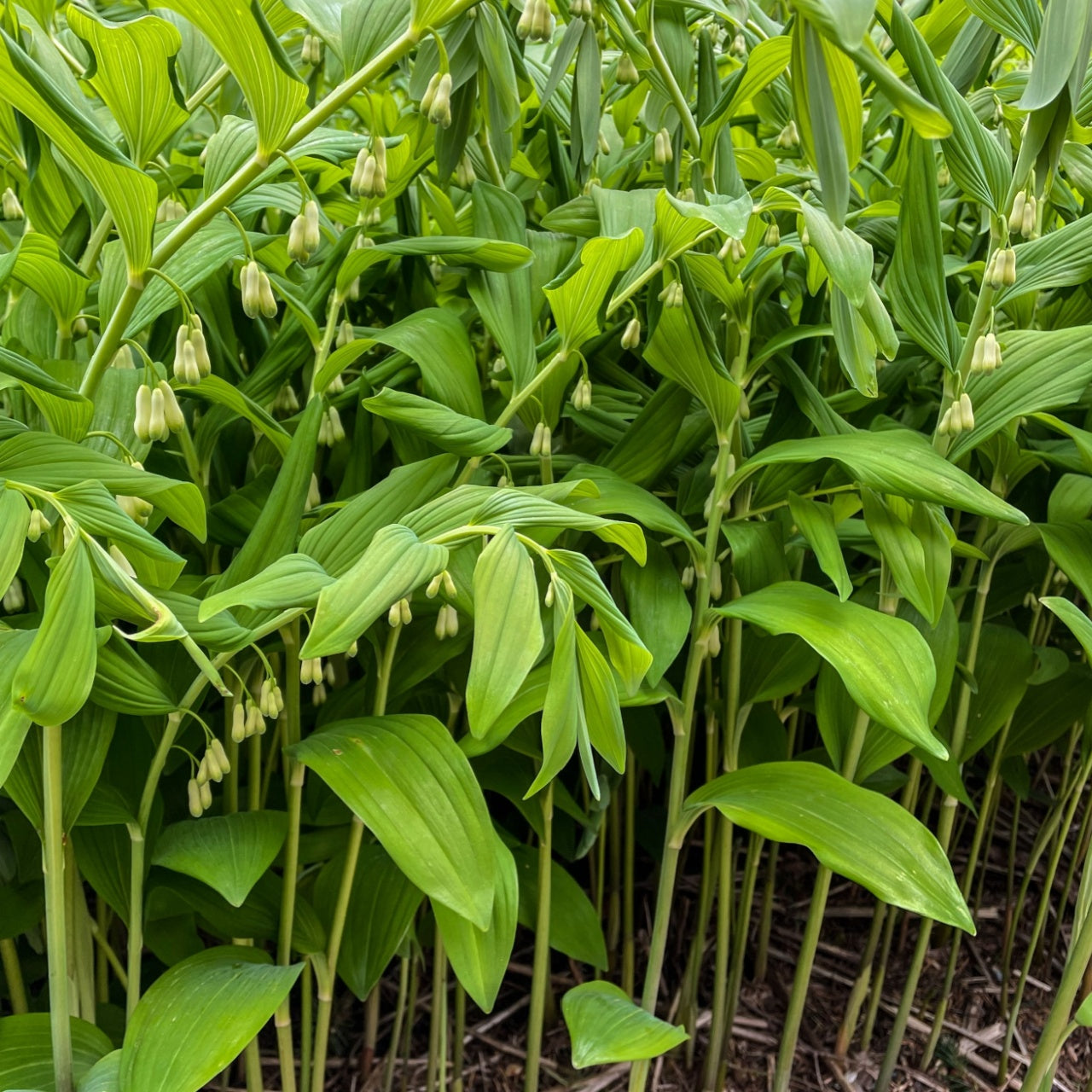Solomon's Seal Plants
Solomon's Seal Plants
This plant ships:
Ships Now (5-7 Days)Couldn't load pickup availability
Exposure
Full ShadeHeight at Maturity
Over 12 InchesUsage
FloweringShipped As
Bare-rootShips
Ships Now (5-7 Days)Planting Zones
4-9Solomon's Seal Plants
Solomon's Seal Plants are a hardy perennial that produces subtle white blooms in spring and summer. When fully matured, it can reach a height of up to six feet. This shade-loving perennial possesses gently arching stems that are dark green. By the formal name of Polygonatum Biflorum, this herbaceous type can be a great addition to any shade garden.
Solomon's Seal Plants Have Little Bell-Shaped Blooms
This deer-resistant perennial yields many small flowers that take on the shape of a bell. These one-inch pendant flowers hang in pairs from an arching, unbranched stem. Each stem hosts ten or more pairs of flowers. These fragrant blooms smell refreshingly like lilies. As the summer turns into fall, the Solomon's Seal Plant will drop its lovely bell-shaped flowers and replace them with berries.
Birds And Squirrels Love These Plants
These blue-to-black berries attract wildlife like birds and squirrels that forage. This perennial's long, four-inch leaves transition into an attractive yellow color in autumn. This long-living perennial is a favorite for many home gardens as it adds depth and contrast.
Pollinators Love The Perennial Plants
These dense colonies of arching stems are highly tolerant of many adverse conditions. They pair well with ferns in any home garden. Native to the eastern region of North America, this deciduous perennial is well-known to be an excellent pollinator for hummingbirds, bees, and butterflies. It is often used to prevent soil erosion in unstabilized areas.
These Plants Are Very Easy To Grow
Solomon's Seal Plants will flourish in large colonies and are easy to grow for even the newest green thumbs. This thick and fleshy type gets its name from its irregularly shaped rhizomes with rounded scars. These scars appear to resemble two inverted triangles, the known symbol of King Solomon.
Share






